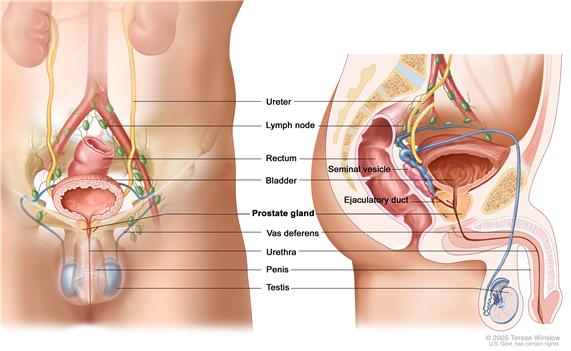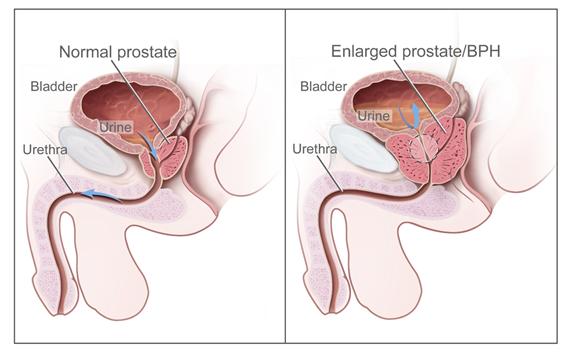Prostate cancer is a disease in which malignant (cancer) cells form in the tissues of the prostate.
- Possible signs of prostate cancer include a weak flow of urine or frequent urination.
- Tests that examine the prostate and blood are used to detect (find) and diagnose prostate cancer.
- Certain factors affect prognosis (chance of recovery) and treatment options.
Prostate cancer is a disease in which malignant (cancer) cells form in the tissues of the prostate.
The prostate is a gland in the male reproductive system located just below the bladder (the organ that collects and empties urine) and in front of the rectum (the lower part of the intestine). It is about the size of a walnut and surrounds part of the urethra (the tube that empties urine from the bladder). The prostate gland makes fluid that is part of the semen.

Anatomy of the male reproductive and urinary systems, showing the prostate, testicles, bladder, and other organs.
Prostate cancer is found mainly in older men. As men age, the prostate may get bigger and block the urethra or bladder. This may cause trouble urinating or sexual problems. The condition is called benign prostatic hyperplasia (BPH), and although it is not cancer, surgery may be needed to correct it. The symptoms of benign prostatic hyperplasia or of other problems in the prostate may be like symptoms of prostate cancer.

Normal prostate and benign prostatic hyperplasia (BPH). A normal prostate does not block the flow of urine from the bladder.
An enlarged prostate presses on the bladder and urethra and blocks the flow of urine.

